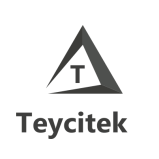
Table of Contents
Introduction
The world is experiencing rapid technological advancements that are transforming industries at an unprecedented pace. One of the most significant developments in this era of innovation is the rise of autonomous AI agents. Intelligent systems can transform business operations by working independently, adapting to their surroundings, and learning from their actions to achieve goals. In this comprehensive guide, we will explore the transformative impact of autonomous AI agents on various industries, including marketing, finance, gaming, research, and personal finance.
What are Autonomous AI Agents?
Autonomous AI agents are like a kind of smart computer that can figure out what it needs to do, actually do it, change its plans if it needs to, and learn from its experiences until it succeeds. Unlike other AI systems that require constant human intervention or guidance, autonomous AI agents have the capability to operate autonomously.
Potential Applications of Autonomous AI Agents
Content Creation

AI agents have the ability to produce engaging and informative content for websites, blogs, and social media platforms. They can generate news articles, create personalized social media posts, and even assist in writing newsletters.
Personal Assistants
AI can work as virtual personal assistants, helping people manage schedules, answer questions, and automate tasks such as sorting emails and paying bills.
Gaming

Autonomous AI agents can be used to develop more advanced non-player characters (NPCs) or opponents in video games. These agents can adapt their strategies based on player behavior, providing a more challenging and immersive gaming experience.
Finance & Personal Finance
AI can aid in managing personal finances by offering tailored advice, tracking expenses, and helping save money through refunds or negotiating better deals. They can also reshape risk assessment and contribute to more accurate financial predictions.
Research & Data Analysis
AI agents can help with research and data by quickly looking through lots of information, finding patterns, and giving insights. They can significantly enhance the speed and accuracy of research projects.
Autonomous AI Agents Framework
The framework for building autonomous AI agents is constantly evolving with advancements in artificial intelligence technology. One notable example is Auto-GPT, an experimental open-source application that leverages the power of the GPT-4 language model. Auto-GPT allows Large Language Models (LLMs) to operate autonomously, enabling them to think, plan, and execute actions without constant human intervention.
Auto-GPT demonstrates the potential of AI to accomplish a wide range of objectives autonomously. By chaining together LLM “thoughts,” Auto-GPT can perform complex tasks and adapt to changing circumstances. Another example of an autonomous AI agent is BabyAGI, an AI-powered task management system that utilizes OpenAI and Pinecone APIs to create, prioritize, and execute tasks based on predefined objectives and the outcomes of previous tasks.
Business Benefits of Autonomous AI Agents
Incorporating autonomous AI agents into organizational processes offers numerous business benefits. Let’s explore some of the key advantages these intelligent systems bring to businesses across various industries.
Improved Efficiency and Productivity
Autonomous AI agents streamline workflows and automate repetitive tasks, allowing employees to focus on more strategic and creative aspects of their work. By reducing the time spent on manual processes, these agents enhance overall productivity and efficiency within organizations.
Enhanced Decision-Making
Autonomous AI agents have the ability to process and analyze large volumes of data efficiently. They can identify patterns, extract insights, and make informed decisions based on the information available. This enables businesses to make data-driven decisions quickly and accurately.
Personalization and Customer Experience
AI agents can provide highly personalized experiences to customers by leveraging data and AI algorithms. They can analyze customer preferences, behavior, and purchase history to deliver tailored recommendations and personalized interactions, enhancing the overall customer experience.
Risk Assessment and Fraud Detection
Autonomous AI agents have the potential to revolutionize risk assessment and fraud detection in industries such as finance and insurance. These agents can analyze vast amounts of data in real-time, identify potential risks or fraudulent activities, and take proactive measures to mitigate them.
Cost Savings
By automating repetitive tasks and streamlining workflows, autonomous AI agents can help businesses reduce operational costs. They can perform tasks with greater efficiency and accuracy, minimizing the need for human intervention and lowering the overall cost of labor.
Scalability and Flexibility
Autonomous AI agents can easily scale to handle increasing workloads and adapt to changing business needs. They can handle many tasks simultaneously without compromising efficiency, making them highly flexible and adaptable to dynamic business environments.
Key Components of Autonomous AI Agents
Autonomous AI agents possess several key components that enable them to function effectively and adapt to their environment. These components include perception, knowledge representation, and decision-making.
Perception
Perception is a critical component of autonomous AI agents as it allows them to sense and interpret their environment. Agents can employ various sensors, such as temperature, humidity, pressure sensors, or cameras, to collect and process data. By analyzing this data, agents gain a comprehensive understanding of their surroundings, which is crucial for their decision-making processes.
Knowledge Representation
Knowledge representation involves storing, organizing, and reasoning with the information acquired by autonomous AI agents. Agents utilize various techniques, such as symbolic representation, frame-based representation, ontologies, probabilistic models, or neural networks, to represent knowledge effectively. This enables agents to make informed decisions, learn from experiences, and communicate with other agents or humans.
Decision Making
Decision-making is a fundamental component of autonomous AI agents. Agents employ rule-based systems, planning algorithms, optimization techniques, machine learning, or multi-agent systems to make decisions based on their current knowledge and objectives. Effective decision-making enables agents to adapt to changing circumstances, make optimal choices, and perform complex tasks autonomously.
The Future of Autonomous AI Agents

As AI technology continues to evolve, autonomous AI agents are expected to become more advanced and play a crucial role in the development of AI. We are getting closer to achieving Artificial General Intelligence (AGI) as AI systems become better at making independent and rational decisions while learning from their actions. This level of AI would have the ability to understand, learn, and apply its knowledge to diverse tasks, comparable to the human mind.
The transformative potential of autonomous AI agents is immense. They have the power to unlock new possibilities for innovation and collaboration between humans and machines. We can expect to see big changes and disruptions in different industries as businesses use more autonomous AI agents. This will shape the future of work and change what we think is possible.
Conclusion
Autonomous AI agents are revolutionizing industries through intelligent automation. Intelligent systems can work on their own, adjust to their surroundings, and improve over time. This helps businesses become more efficient, make better decisions, personalize experiences, assess risk, save money, and grow easily. Autonomous AI agents are changing the way we work by using perception, knowledge representation, and decision-making. This is the future of AI. We are getting closer to achieving Artificial General Intelligence and discovering new possibilities with autonomous AI agents.
